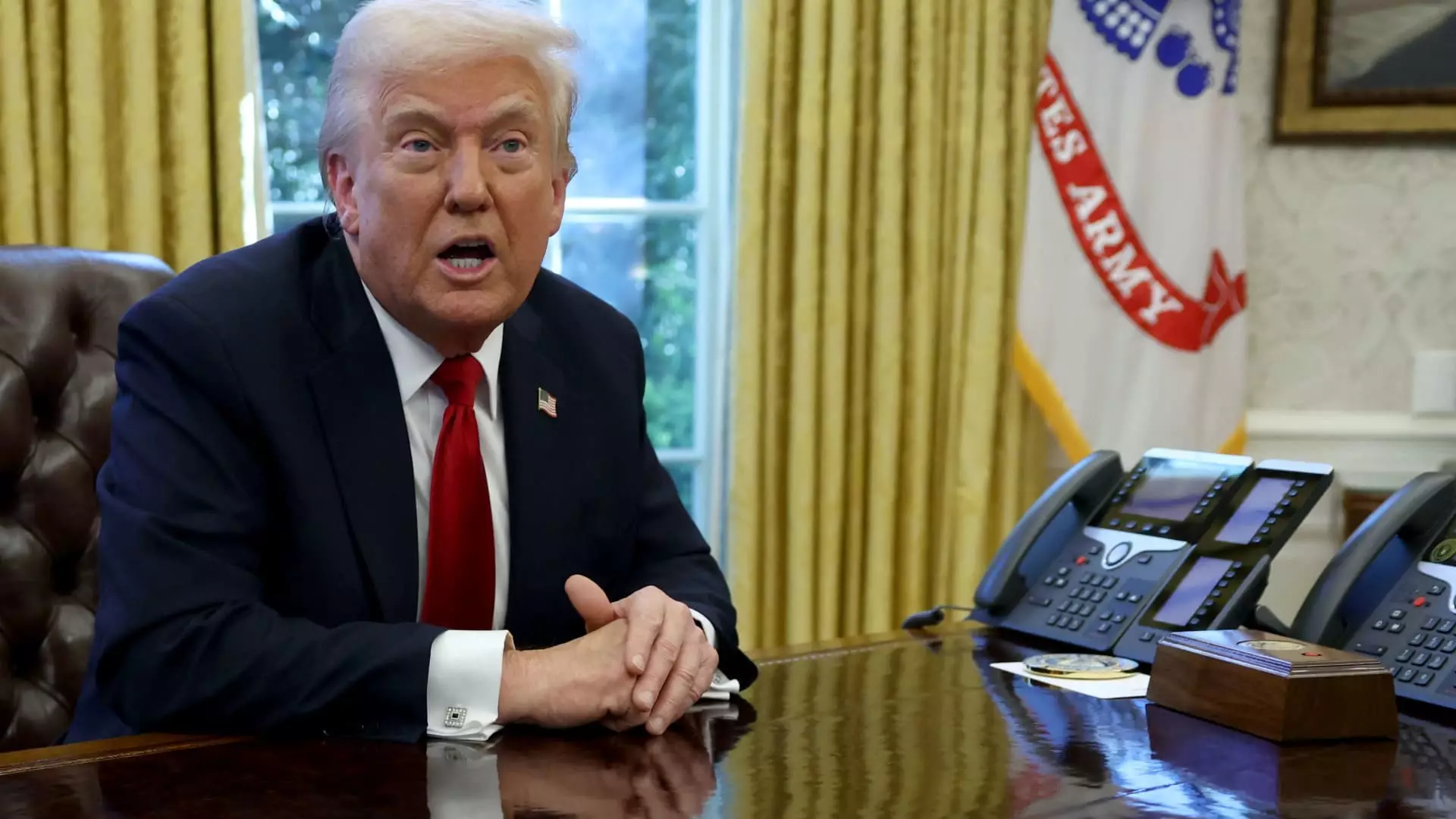The recent announcement by former President Donald Trump to impose a staggering 25% tariff on all cars not made in the United States raises eyebrows, particularly in a market grappling with the aftermath of the pandemic and global supply chain disruptions. This policy could be interpreted as a patriotic push to bolster domestic manufacturing; however, it may also be a misguided move that could suffocate innovation and escalate prices, making it a double-edged sword for American consumers and businesses alike.
Trump’s comments, eschewing advice from Tesla’s CEO Elon Musk due to purported conflicts of interest, reflect a troubling detachment from economic realities. One would expect an advisor of Musk’s caliber, who has passionately advocated for sustainable energy solutions, to have significant input on such an impactful decision. By sidelining him, Trump risks alienating not just a visionary business leader but also the future of the automotive sector that relies heavily on collaboration and innovation.
The Deteriorating Dynamics of Global Trade
The automotive sector is intricately woven into a global tapestry of production and distribution. As noted by Tesla, even with pushback on foreign dependency, many parts essential for vehicle assembly are simply not feasible to source domestically. The tariffs could lead to an insurmountable increase in operational costs, which might, ironically, hurt the very domestic manufacturers Trump claims to protect.
What’s more concerning is the broader economic environment where these tariffs are being implemented. Global inflation remains a pressing threat, and increasing consumer prices due to these tariffs could lead to reduced demand for vehicles at a time when many companies are still teetering on the edge of stability. A knee-jerk reaction to bolster American jobs in manufacturing must be weighed against potential job losses in the sectors affected by these tariffs, including technology, logistics, and international trade.
Musk and Economic Policy: A Troubled Relationship
Musk’s relationship with the Trump administration exemplifies the precarious nature of aligning with political figures for mutual advantage. While Musk has reportedly contributed a handsome $290 million toward Trump’s re-election efforts, the irony isn’t lost: a collaboration meant to benefit both parties now unfolds into political bait that appears inconsistent and opportunistic. Musk, known for his disruption in various industries, could find himself compromised, robbed of autonomy when its synergy with Trump appears more like a puppet show rather than a partnership.
The tension is palpable. Trump’s latest moves position him to draw public admiration while disregarding the complexities of economic interdependence – a gamble that could backfire in the long run. Expectations from a man known for unconventional tactics can lead to unpredictable outcomes, which should be alarming for anyone invested in the future of jobs and the economy.
The Competitive Landscape: Why Tariffs Could Be Toxic
In an age where competition is fierce, especially with electric vehicles (EVs) taking center stage globally, the timing of these tariffs feels particularly counterproductive. Tesla is not just fighting domestic competitors like Ford and General Motors but also foreign powerhouses such as BYD from China. By imposing tariffs, the playing field is tilted, and it could lead to reduced innovation investment as companies scramble to cover increased costs.
Additionally, falling shares of domestic automakers in the stock market following Trump’s announcements signify a loss of confidence. When companies fear that the very policies designed to protect them could hinder their market viability, it suggests a disconnect between policy and practical economics. Businesses thrive on predictability and clarity, and such abrupt decisions breed uncertainty, jeopardizing investment strategies and ultimately the workforce dependent on these companies.
A National Identity Crisis
Ultimately, what’s at stake here is the essence of American identity in the global marketplace. The push to prioritize “Made in America” offers a nostalgic allure of patriotism, yet it could foster isolationism that undermines America’s competitive edge. In a country built on the principle of free markets, difficult decisions often boil down to finding a balance rather than resorting to backward policies that erect barriers and stifle economic dialogue.
As we confront the complexities of such tariff policies, it’s vital to approach the conversation with a sense of realism. Will this be a launchpad for innovation, or will it be yet another instance where the veneer of patriotism masks a deeper economic malaise? The decisions made in the coming months will indeed define the trajectory not just for the automotive sector but for the American economy as a whole.

